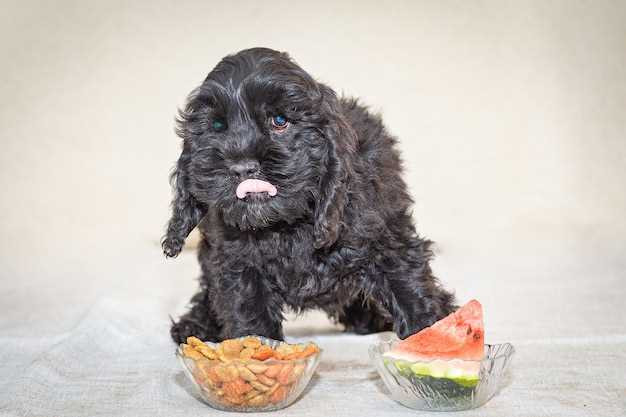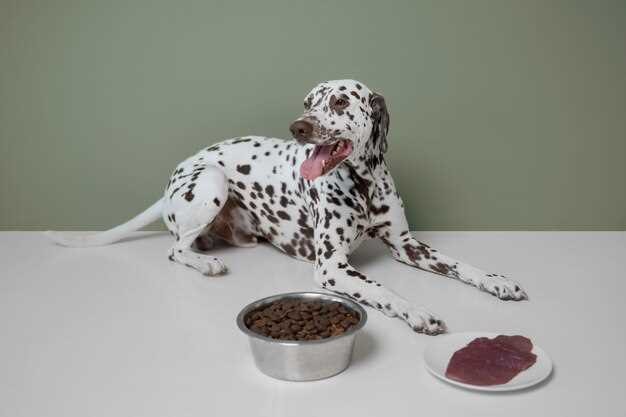
The Cane Corso is a powerful and athletic dog breed known for its loyalty and protective nature. To keep this magnificent breed healthy and thriving, it is crucial to provide them with a balanced and nutritious diet. Choosing the right dog food for your Cane Corso can make a significant difference in their overall well-being and longevity.
When it comes to selecting the best dog food for your Cane Corso, there are a few factors to consider. First and foremost, you should opt for a high-quality dog food brand that uses premium ingredients. Look for a dog food that contains real meat as the first ingredient, such as chicken, beef, or fish. This will ensure that your Cane Corso is getting the essential amino acids and protein they need to maintain strong muscles and support their active lifestyle.
Furthermore, it is essential to choose a dog food that is specifically formulated for large and giant breed dogs. These breeds, including the Cane Corso, have unique nutritional requirements due to their size and growth patterns. Look for a dog food that provides balanced nutrition with the right amounts of proteins, fats, and carbohydrates to support your Cane Corso’s growth and development without causing excessive weight gain.
Lastly, consider your Cane Corso’s individual needs and any specific health concerns they may have. Some Cane Corsos may benefit from a grain-free or limited ingredient diet if they have allergies or sensitivities. Additionally, if your Cane Corso is prone to joint issues, look for a dog food that includes glucosamine and chondroitin to support joint health.
Remember, it is always a good idea to consult with your veterinarian to determine the best dog food for your Cane Corso’s specific needs. They can provide valuable guidance and recommend a dog food that will promote their overall health and well-being. By providing your Cane Corso with the best dog food suited to their needs, you can help them live a long, healthy, and happy life.
Understanding the nutritional needs of Cane Corso
The Cane Corso is a large and muscular breed that requires a balanced and nutritious diet to maintain its health and well-being. As an active and energetic dog, the Cane Corso has specific nutritional needs that must be met to support its growth, energy levels, and overall health.
Protein: The Cane Corso has a higher protein requirement compared to other dog breeds due to its muscle mass and activity levels. Protein is essential for muscle development and repair, so it is important to choose a dog food that contains high-quality sources of protein, such as chicken, beef, or fish.
Fat: Fat is a concentrated source of energy for dogs and provides essential fatty acids for their overall health. The Cane Corso requires a moderate amount of fat in its diet to support its high energy levels. Look for dog foods that contain healthy fats, such as omega-3 fatty acids from fish oil, to promote a healthy coat and skin.
Carbohydrates: Although the Cane Corso is primarily a carnivorous animal, carbohydrates are still an important part of its diet. Carbohydrates provide a source of energy and help with digestion. Look for dog foods that include whole grains, such as brown rice or oats, as well as fruits and vegetables for a well-rounded diet.
Vitamins and Minerals: Like humans, dogs require a variety of vitamins and minerals to maintain their health. These nutrients play a crucial role in supporting immune function, bone health, and overall wellbeing. Look for dog foods that are fortified with essential vitamins and minerals or consider adding a dog vitamin supplement to ensure your Cane Corso’s nutritional needs are being met.
Feeding Schedule: It is important to establish a regular feeding schedule for your Cane Corso to maintain its optimal health. Feeding should be divided into two meals per day, with the recommended portion size based on the dog’s age, weight, and activity level. Avoid overfeeding or free-feeding to prevent issues with obesity.
Remember, every dog is unique, and their nutritional needs may vary based on their age, metabolism, and activity level. It is always best to consult with a veterinarian to determine the best diet and feeding plan for your Cane Corso to ensure they receive the proper nutrition they need to thrive.
Factors to consider when choosing dog food
Choosing the right dog food is crucial to ensuring your Cane Corso’s health and well-being. Here are some important factors to consider when making your decision:
Nutritional content: Look for a dog food that provides a balanced and complete nutritional profile. It should contain high-quality proteins, fats, carbohydrates, vitamins, and minerals to meet your Cane Corso’s specific dietary requirements.
Age and life stage: Consider your dog’s age and life stage when selecting a dog food. Puppies, adult dogs, and senior dogs have different nutritional needs, so choose a formula that is appropriate for your Cane Corso’s stage of life.
Protein source: Pay attention to the source of the protein in the dog food. High-quality animal proteins, such as chicken, beef, or fish, should be listed as the main ingredients. Avoid foods that contain excessive amounts of fillers or unidentified meat by-products.
Allergies and sensitivities: If your Cane Corso has known allergies or sensitivities, look for a dog food that is free from common allergens, such as grains or certain proteins. Consider consulting with your veterinarian to determine the best diet for your dog’s specific needs.
Brand reputation: Choose a dog food from a reputable and trustworthy brand. Look for brands that have a solid track record of producing high-quality, safe, and nutritious dog food. Read reviews and do some research to ensure you are selecting a brand that puts your dog’s health first.
Cost: While cost should not be the sole determinant of your decision, it is important to consider your budget. Look for a dog food that provides good value for its price, balancing quality ingredients with affordability.
Feeding recommendations: Follow the feeding recommendations provided by the dog food manufacturer. Every dog is different, so adjust the amount of food based on your Cane Corso’s individual needs, activity level, and body condition.
Remember, choosing the right dog food is essential for your Cane Corso’s overall health and happiness. Take the time to research and select a high-quality dog food that meets their nutritional requirements and supports their specific needs.
High-protein dog food for Cane Corso

When it comes to feeding your Cane Corso, it is important to choose a high-quality dog food that meets their nutritional needs. One key aspect to consider is the protein content of the food.
Cane Corsos are large and muscular dogs that require a diet rich in protein to support their active lifestyle. Protein is essential for building and repairing muscles, and it also helps with proper growth and development.
Look for a dog food that lists a high-quality source of animal protein as the first ingredient. This can include chicken, beef, or fish. Avoid dog foods that list fillers, by-products, or artificial additives as the main ingredients.
The protein content of the dog food should be at least 25% or higher. Additionally, it is recommended to choose a dog food that is specifically formulated for large breed dogs, as they have different nutritional requirements compared to smaller breeds.
It is also worth considering a grain-free dog food for your Cane Corso. While dogs can digest grains, some may have allergies or sensitivities to them. A grain-free dog food can be easier on their digestive system and help prevent any potential issues.
Consulting with your veterinarian can help you choose the best high-protein dog food for your Cane Corso. They can take into account your dog’s age, weight, activity level, and any specific health concerns when making recommendations.
Remember, providing your Cane Corso with a high-protein dog food will help keep them healthy, strong, and full of energy.
Grain-free dog food options
When choosing the best dog food for your Cane Corso, it is important to consider grain-free options. Grain-free dog food is a popular choice for many dog owners because it eliminates common allergens such as wheat, corn, and soy. Here are some grain-free dog food options that may be suitable for your Cane Corso:
1. Acana Regionals Grain-Free Dry Dog Food: This high-quality dog food is made with fresh, regional ingredients including free-run chicken, whole eggs, and wild-caught fish. It is grain-free and packed with protein, promoting muscle development and supporting a healthy coat.
2. Taste of the Wild Grain-Free High Protein Dry Dog Food: This grain-free dog food is made with real roasted meat as the primary ingredient. It contains a blend of high-quality proteins, such as venison and bison, and fruits and vegetables for optimal nutrition.
3. Wellness CORE Grain-Free Dry Dog Food: This grain-free dog food is formulated with a high concentration of protein from real meat sources, such as deboned turkey and chicken meal. It is also fortified with essential vitamins and minerals for overall health and wellbeing.
4. Merrick Grain-Free Dry Dog Food: This grain-free dog food features real deboned meat as the main ingredient, along with a mix of wholesome fruits, vegetables, and whole grains. It is rich in omega fatty acids, promoting a healthy skin and coat.
5. Orijen Grain-Free Dry Dog Food: This grain-free dog food is made with a variety of fresh, quality ingredients, including free-run chicken and turkey, wild-caught fish, and whole eggs. It is biologically appropriate and mirrors the natural diet of dogs, nourishing them with essential nutrients.
Always consult with your veterinarian before making any changes to your Cane Corso’s diet, as their specific dietary needs may vary.
Raw food diet for Cane Corso
A raw food diet can be a great option for feeding your Cane Corso. Also known as a BARF diet, which stands for Biologically Appropriate Raw Food, this nutrition plan aims to mimic the natural diet of dogs in the wild. Many Cane Corso owners have reported multiple benefits of feeding their dogs a raw food diet.
One of the main advantages of a raw food diet is that it provides a more natural and balanced nutrition for your Cane Corso. This diet consists of raw meat, bones, fruits, vegetables, and sometimes certain supplements. By feeding your Cane Corso this way, you are providing them with essential nutrients, enzymes, and amino acids that might be lost in the cooking process of commercial dog food.
Raw food is believed to promote healthier skin and coat in Cane Corsos. The diet is rich in Omega-3 fatty acids, which help to reduce inflammation and improve the overall condition of the skin and coat. A raw food diet can also contribute to healthier teeth and gums since the chewing required to eat raw bones can help to clean their teeth naturally.
Switching your Cane Corso to a raw food diet will require careful planning and consultation with a veterinarian or a canine nutritionist. It is important to ensure that your dog’s nutritional needs are met and that the diet is well-balanced to avoid any deficiencies. Also, proper handling and storage of raw meat are crucial to prevent the risk of bacterial contamination.
It’s worth mentioning that a raw food diet may not be suitable for all Cane Corsos. Some dogs have specific dietary requirements or health conditions that might not be compatible with a raw food diet. It’s always best to consult with a professional who can help determine if this is the right choice for your Cane Corso.
In conclusion, a raw food diet can be a beneficial option for feeding your Cane Corso, as it aims to provide a more natural and balanced nutrition. However, it’s important to consult with a professional to ensure that it meets your dog’s specific needs and to avoid any potential risks.
